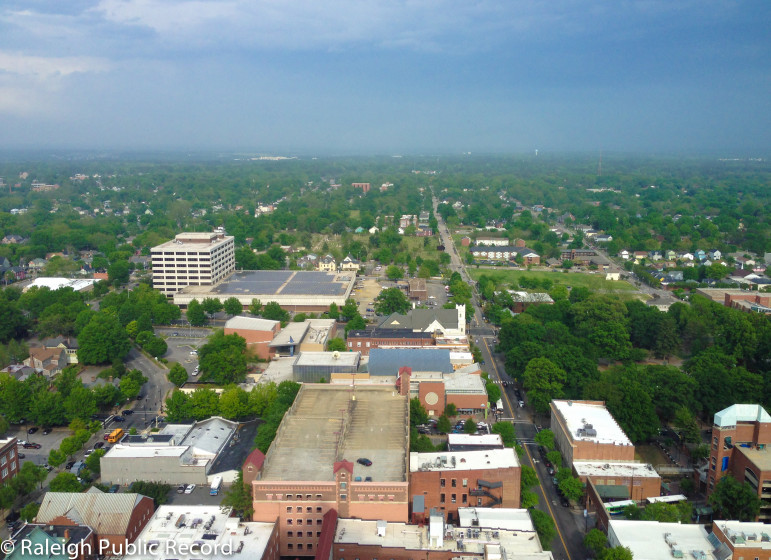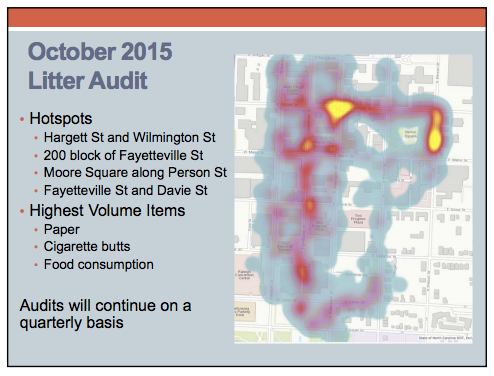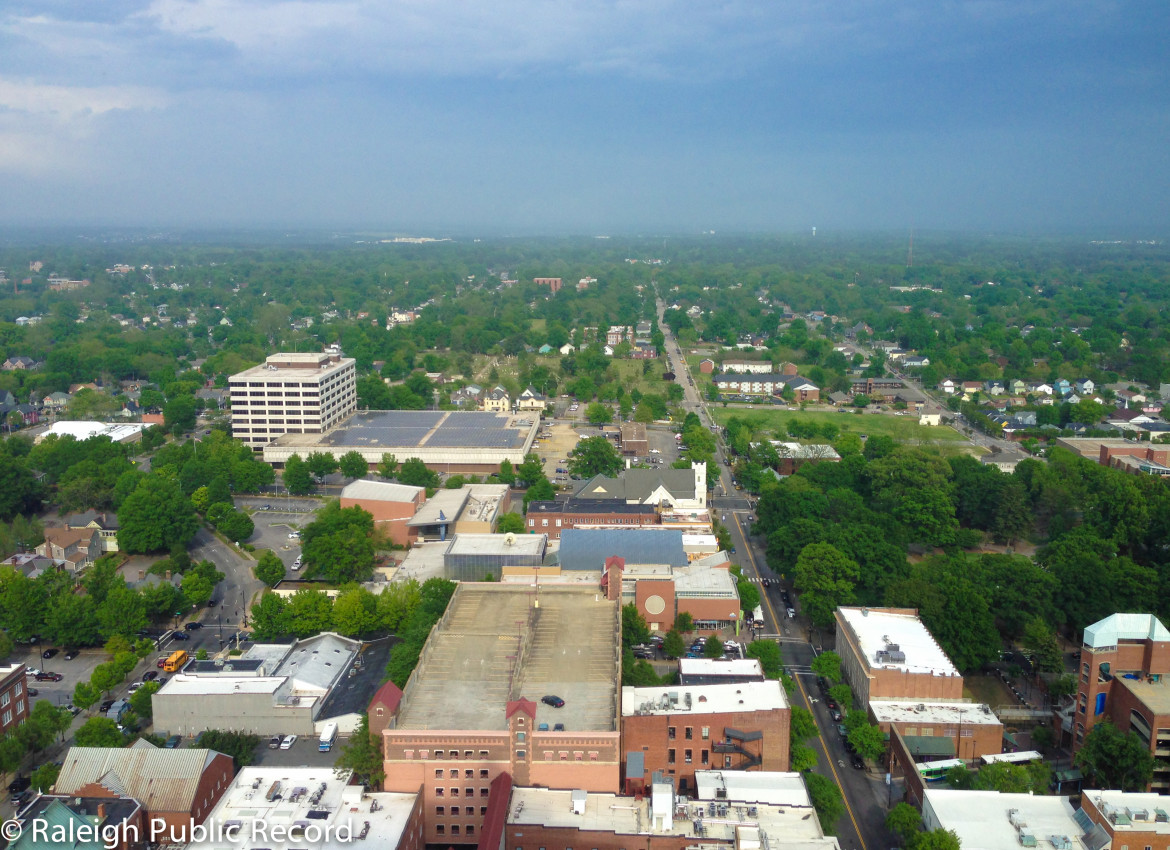During the first of three scheduled budget work sessions Raleigh City Councilors got a look at the possible costs of keeping Downtown sparkling clean.
Parks and recreation director Diane Sauer presented councilors with three possible, but flexible, options that range in price from an estimated $235,000 to $2.35 million. All options include hiring additional staff, but vary in their aggressiveness.
The work sessions are intended to give Councilors a chance to provide feedback to city staff as City Manager Ruffin Hall prepares his proposed 2016-2017 budget, which will be unveiled later this spring.
Garbage throughout Raleigh’s central entertainment district has been constant source ire among residents, downtown workers and visitors alike.

James Borden / Raleigh Public Record
As pristine as the city looks from above, many of the streets are often littered with refuse
Notably, as Raleigh grew, so did the trash problem.
“We have experienced tremendous growth and activity in our downtown area,” said Sauer.
Between 2009 and 2013 the number of residents living in downtown increased 71 percent and between 2007 and 2015 about 160 storefront businesses opened. Despite the growth, staff resources dedicated to downtown cleanliness has either decreased or stayed the same, depending on the department.
An October 2015 litter audit by the city’s cleanliness task force identified several hotspots, most of which focus around downtown’s central entertainment district: Hargett Street and Wilmington Street, the 200 block of Fayetteville Street, Moore Square along Person Street, and Fayetteville Street and Davie Street.
Paper products, cigarette butts, and food containers and wrappers made up the bulk of the trash.
The audit outlined the three areas for a phased approach, with the central entertainment district identified as the first. The options presented to Councilors only included service enhancements for this area.
Audits are now done on a quarterly basis with the last being done on a recent Saturday in February.
Big Bellies and Staffing Increases
Currently, the city provides daily street sweeping, street and business container collection, landscaping, plant and tree maintenance, ground litter removal and special events support.
A marginal increase in service would strategically place additional Big Belly trash cans and corner can pairs, and hire three staffers to service the extra receptacles. With Big Belly currently changing its pricing model, Sauer said they are unsure how the costs of the units will change, but the option would cost the city about $235,000 to $335,000.
A moderate increase in service takes it a step further by also including two additional passes for litter pick up, before the morning commute and after lunch, daily cleaning of city furnishings and emptying of ash urns, sidewalk spot cleaning, and weeding tree grates. This plan would also include 12 additional staffers and cost between $575,000 and $675,000.

The most expensive option, coming in between $2 million and $2.35 million would include all of the service changes made in the other two options, plus an evening litter pickup, more targeted cleaning, and staff and materials to repair and replace tree grates, This plans includes the hiring of 28 staffers including a downtown coordinator that would monitor conditions and facilitate services.
Council Discussion
While the Council had a few questions for staff, no discussion took place about which option would be best. Most questioning centered around details pertaining to increased staffing and their responsibilities.
Mayor Nancy McFarlane asked if the private trash cans used by businesses were considered during the planning process. “In the perception of trash downtown, having the sidewalks lined with trash cans doesn’t always help,” she said.
Sauer replied that those were not part of the conversation.
Councilor Bonner Gaylord asked how Raleigh’s model compared to other cities and if anything could be learned.
Sauer said models varied widely, but, “the one thing we did notice, and we included in in our third option, was the downtown coordinator.”
Responding to questions about special events from Dickie Thompson, Sauer said that event organizers are responsible for contracting with a company to clean up after the event knowing that if they don’t clean up they can’t come back.
Hall acknowledged that there is going to be an intersection between the municipal service district and those contracted services and the services that the city plans to provide. In the recently released requests for proposals, cleanliness as a focus was included, but it will be up to the contractor to outline its plans for those services.
Next Meeting
Councilors will meet again on March 21 for its second budget work session. An agenda for the meeting as yet been posted.
